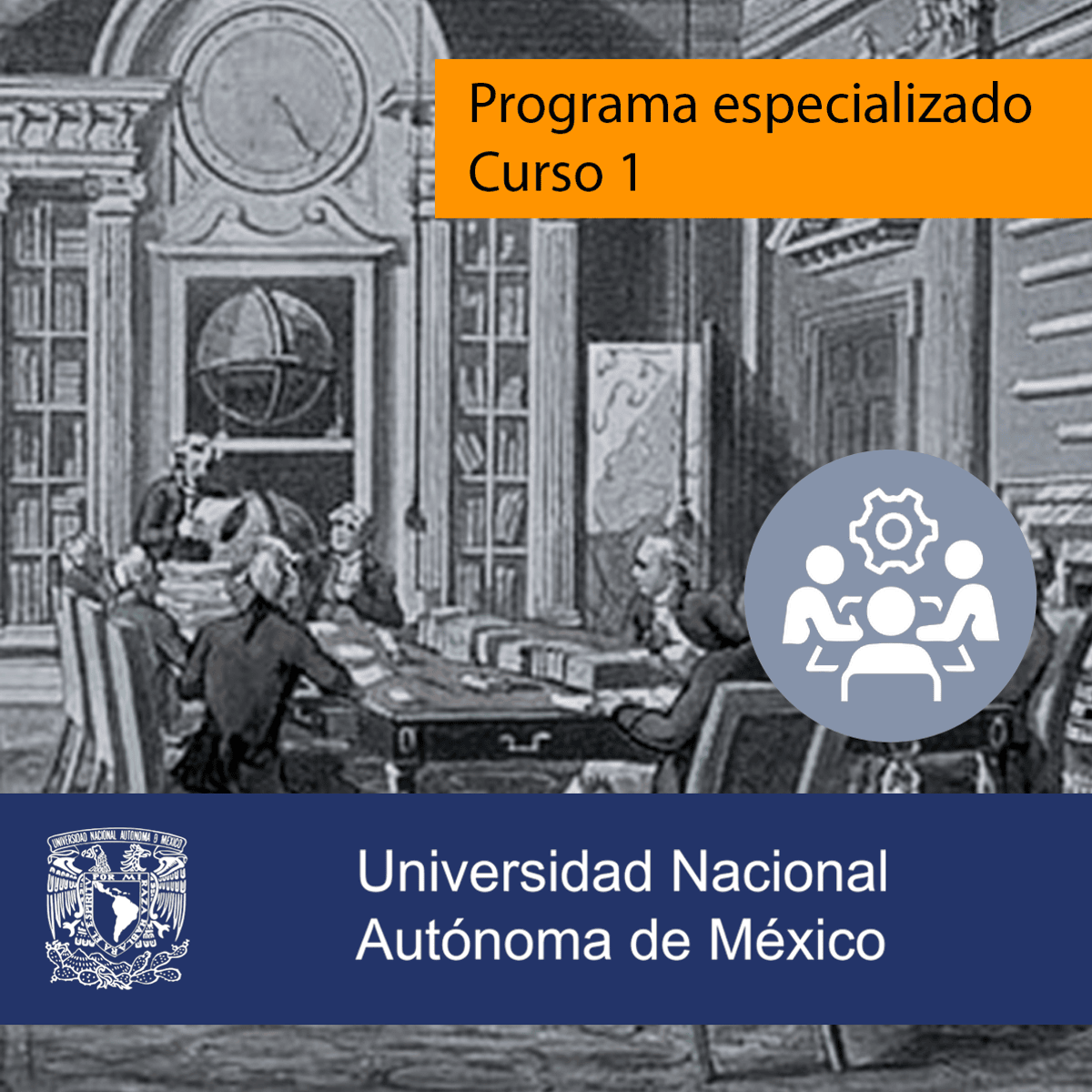Chief Executive Officer
Chief Executive Officer: Leading the Way
The Chief Executive Officer, or CEO, stands at the apex of an organization's leadership structure. This individual holds the ultimate responsibility for the company's overall success, setting the strategic direction, making pivotal decisions, and managing operations and resources. The CEO acts as the primary link between the board of directors (representing shareholders) and the company's internal operations, translating broad goals into actionable plans.
Working as a CEO offers the unique opportunity to shape the future of an organization and potentially an entire industry. It involves navigating complex challenges, driving innovation, and building high-performing teams. For many, the appeal lies in the potential to create significant value, lead change, and leave a lasting legacy through strategic vision and execution.
Overview of the Chief Executive Officer Role
What Does a CEO Actually Do?
The CEO is the highest-ranking executive, tasked with leading the development and execution of long-term strategies. Their primary responsibility is to create value for stakeholders, which increasingly includes not just shareholders, but also employees, customers, and the wider community. Day-to-day activities involve overseeing executive leadership, making major corporate decisions, managing overall operations and resources, and acting as the main point of communication between the board of directors and corporate operations.
CEOs are ultimately accountable for the performance of the company. This encompasses financial results, operational efficiency, market position, and organizational health. They must possess a deep understanding of the business, the industry, and the broader economic landscape to guide the company effectively through opportunities and challenges.
Success in this role requires a blend of strategic thinking, decisive action, and the ability to inspire and motivate large groups of people toward a common goal. The CEO's leadership directly influences the company's culture, direction, and overall trajectory.
Where Do CEOs Work?
CEOs lead organizations across virtually every sector, from multinational corporations and technology startups to non-profit organizations and government agencies. The specific challenges and focus areas can vary significantly depending on the industry, company size, and organizational structure. For instance, a CEO of a tech startup might focus heavily on innovation and securing funding, while the CEO of a large manufacturing firm might prioritize operational efficiency and supply chain management.
Large corporations, often publicly traded, typically have complex structures requiring the CEO to manage multiple divisions and report to a board. In smaller businesses or startups, the CEO might wear many hats, including roles closer to operations or product development. Non-profit CEOs focus on mission fulfillment and fundraising, balancing social goals with financial sustainability.
Regardless of the setting, the core function remains consistent: providing vision, direction, and leadership to steer the organization towards its objectives.
CEO vs. Other C-Suite Roles
The C-suite refers to a corporation's most senior executives. While the CEO holds the top position, other C-suite roles have distinct responsibilities. The Chief Financial Officer (CFO) manages the company's finances, including planning, risk management, and reporting. The Chief Operating Officer (COO) typically oversees the day-to-day administrative and operational functions of the business.
Other common roles include the Chief Technology Officer (CTO), focused on technology strategy and R&D, and the Chief Marketing Officer (CMO), responsible for marketing and sales management. Each C-suite executive leads their respective area, reporting to the CEO who integrates these functions into a cohesive overall strategy.
The CEO's role is unique in its breadth, requiring a holistic view of the entire organization and its external environment. They synthesize information from all departments to make final decisions on strategic direction and resource allocation.
The Impact of CEO Decisions
Decisions made by the CEO have far-reaching consequences, impacting the organization's financial health, employee morale, market reputation, and long-term viability. Strategic choices regarding market entry, product development, mergers, acquisitions, or major investments can determine the company's trajectory for years to come.
A CEO's leadership style and ethical compass also shape the corporate culture. Their actions set the tone for how employees interact, make decisions, and approach their work. Effective CEOs foster environments of trust, innovation, and accountability, while poor leadership can lead to dysfunction, stagnation, and decline.
Furthermore, in an era of increased scrutiny, CEO decisions regarding social responsibility, environmental impact, and ethical conduct significantly affect public perception and stakeholder relations. The ability to balance diverse interests and make sound, ethical judgments is paramount to sustained organizational success.
Historical Evolution of the Chief Executive Officer
Origins in Corporate Governance
The concept of a single chief executive evolved alongside the modern corporation. Early corporations often had presidents or general managers, but the distinct title and broadly defined role of CEO solidified primarily in the 20th century, particularly in the United States. This shift reflected the growing complexity of business operations and the need for centralized leadership and accountability.
Initially, the role was often combined with that of the Chairman of the Board. Over time, especially in larger companies, these roles began to separate to improve corporate governance and oversight, although the practice varies globally. The CEO became the agent responsible for executing the strategy set forth or approved by the board, acting in the interests of the shareholders.
Understanding the system of accountability between management and shareholders is crucial. Corporate governance frameworks define the relationships and responsibilities among different stakeholders in the organization.
These courses provide insights into corporate governance structures.
Changing Responsibilities Over Time
Throughout the 20th century, the CEO's role expanded beyond purely operational oversight. Post-World War II economic expansion led to larger, more diversified corporations, demanding greater strategic planning and financial management skills from CEOs. The rise of management theory also influenced leadership approaches.
The late 20th and early 21st centuries brought increased focus on globalization, technological disruption, and shareholder value maximization. CEOs became more public figures, responsible for communicating the company's vision to investors and the media. The emphasis shifted towards strategic agility, managing innovation, and navigating complex global markets.
More recently, societal expectations have broadened the CEO's remit further, demanding attention to environmental, social, and governance (ESG) factors alongside financial performance. This reflects a move towards stakeholder capitalism, where companies aim to serve the interests of all stakeholders, not just shareholders.
Notable Transformative CEOs
History offers numerous examples of CEOs whose leadership dramatically reshaped their companies and industries. Figures like Alfred P. Sloan at General Motors pioneered modern management structures. Thomas J. Watson Sr. and Jr. built IBM into a technology giant through a strong corporate culture and focus on innovation.
More contemporary examples include Steve Jobs, whose return to Apple sparked a period of revolutionary product innovation, and Jack Welch at General Electric, known for his focus on efficiency and leadership development. These leaders, though sometimes controversial, demonstrate the profound impact a CEO can have on an organization's direction, culture, and success.
Studying these cases provides valuable lessons in strategy, leadership, and navigating change, offering insights into both effective practices and potential pitfalls.
This book examines leadership styles and their impact.
Modern Trends: Stakeholder Capitalism and Beyond
The contemporary CEO operates in an environment characterized by rapid change and heightened expectations. The concept of "stakeholder capitalism," which posits that companies should serve the long-term interests of all stakeholders (employees, customers, suppliers, communities, and shareholders), is gaining prominence.
This contrasts with the traditional view of shareholder primacy, where the main goal is maximizing shareholder returns. Today's CEOs must increasingly balance financial objectives with ESG considerations. Issues like climate change, diversity and inclusion, and ethical supply chains are becoming central to corporate strategy and reputation management.
Furthermore, the digital age demands CEOs be adept at navigating technological disruption, cybersecurity risks, and managing a company's public image in a 24/7 news cycle. The role continues to evolve, requiring a blend of traditional business acumen and new competencies in areas like digital literacy and sustainability.
Explore conscious capitalism and its principles through this course.
Core Competencies and Skills
Strategic Vision and Long-Term Planning
A fundamental competency for any CEO is the ability to develop and articulate a clear strategic vision for the organization's future. This involves analyzing market trends, competitive landscapes, and internal capabilities to identify opportunities and threats. CEOs must think years, even decades, ahead.
Long-term planning translates this vision into actionable goals and roadmaps. It requires prioritizing initiatives, allocating resources effectively, and setting measurable objectives. The CEO must ensure the entire organization is aligned with the strategic direction and understands its role in achieving it.
Developing strategic thinking involves synthesizing complex information, anticipating future scenarios, and making choices that position the company for sustainable success. Explore foundational concepts through management and strategy courses.
These courses offer comprehensive training in strategic management and planning.
These books provide frameworks for strategic thinking and competitive analysis.
Financial Literacy and Capital Allocation
CEOs must possess strong financial acumen to understand the company's performance, evaluate investment opportunities, and make sound capital allocation decisions. This involves interpreting financial statements, understanding key metrics, and managing budgets effectively. While they rely on CFOs for detailed financial management, CEOs need a firm grasp of the financial implications of strategic choices.
Capital allocation—deciding how to invest the company's resources (e.g., in R&D, acquisitions, share buybacks, dividends)—is one of the CEO's most critical responsibilities. Effective allocation drives growth and maximizes long-term value creation. Poor decisions can waste resources and jeopardize the company's future.
Understanding finance is crucial even for those without a finance background. Online courses can provide the necessary foundation.
These courses are designed to build financial literacy for executives and managers.
Stakeholder Management
CEOs interact with a wide range of stakeholders, each with different interests and expectations. Key groups include the board of directors, employees, investors, customers, regulators, and the community. Effectively managing these relationships is crucial for building trust, securing support, and navigating the complexities of the business environment.
Communicating effectively with the board, ensuring alignment on strategy, and providing transparent reporting are essential. Engaging employees, fostering a positive culture, and attracting/retaining talent are vital for operational success. Maintaining investor confidence requires clear communication of performance and strategy. Building strong customer relationships drives revenue and loyalty.
Navigating these diverse relationships demands strong communication, negotiation, and influencing skills, as well as high emotional intelligence. Courses in leadership and communication can help develop these abilities. Consider exploring resources in Communication Studies.
These courses focus on developing leadership, negotiation, and collaboration skills.
This book offers insights into building trust, a key element in stakeholder management.
Crisis Management and Decision-Making Under Uncertainty
CEOs inevitably face crises, whether financial downturns, operational failures, public relations disasters, or global pandemics. The ability to lead effectively during turbulent times, make critical decisions under pressure, and communicate clearly and calmly is paramount.
Decision-making often occurs with incomplete information and significant uncertainty. CEOs must weigh risks and potential rewards, consider various scenarios, and make timely, informed choices. This requires analytical rigor, sound judgment, and the courage to act decisively.
Developing resilience and learning to manage stress are crucial for navigating high-pressure situations. Practicing critical thinking and scenario planning can prepare leaders for unforeseen challenges.
These courses focus on critical thinking, decision-making, and managing uncertainty.
Career Progression Path to Chief Executive Officer
Typical Pre-CEO Roles
The path to CEO is rarely direct and often involves decades of experience gaining broad business exposure. Many future CEOs rise through operational or functional leadership roles. Positions like General Manager (GM) or Division Head provide experience running a significant part of the business, often with Profit & Loss (P&L) responsibility.
Roles such as Chief Operating Officer (COO), Chief Financial Officer (CFO), or leaders of major business units are common stepping stones. These positions offer opportunities to develop strategic thinking, financial acumen, and leadership skills necessary for the top job. Experience across different functions or business units is often highly valued.
Building a track record of success in progressively senior roles, demonstrating leadership potential, and developing a deep understanding of the business are key elements of the journey.
Consider exploring related executive roles.
Industry-Specific Pathways
While core leadership skills are transferable, the specific path to CEO can vary by industry. In technology, individuals with strong technical backgrounds (e.g., engineering, product management) often rise to leadership, sometimes founding their own companies. Deep product knowledge and innovation capabilities are highly valued.
In manufacturing or industrial sectors, operational experience, supply chain management expertise, and a focus on efficiency might be more common pathways. Financial services often see leaders emerge from investment banking, asset management, or risk management backgrounds.
Regardless of the industry, gaining cross-functional experience is often advantageous. Aspiring leaders should seek opportunities to broaden their exposure beyond their initial area of expertise, perhaps through rotational programs, special projects, or pursuing advanced education like an MBA.
Timeline to the Top
Reaching the CEO position typically takes significant time and experience. While there are exceptions, particularly in founder-led startups, most CEOs in established companies have 20-30 years of work experience before attaining the role. The journey involves climbing the corporate ladder, consistently demonstrating high performance and leadership potential.
Factors influencing the timeline include individual performance, mentorship, networking, industry dynamics, and sometimes, an element of luck. There's no fixed schedule, and career paths can be non-linear. Some may spend their entire career at one company, while others gain diverse experience across multiple organizations.
Patience, perseverance, and a commitment to continuous learning and development are essential. The path requires dedication and resilience to navigate the challenges and competition inherent in reaching senior executive levels.
Life After CEO
The CEO role is demanding, and tenures can vary. After stepping down, many former CEOs remain active in the business world. Serving on corporate boards of directors is a common path, allowing them to leverage their experience and strategic insights to provide governance and advice to other companies.
Some former CEOs pursue entrepreneurship, starting new ventures or investing in startups. Others move into advisory roles, consulting, private equity, or academia. Philanthropy and public service are also common avenues for those looking to apply their leadership skills to different domains.
The skills and network developed as a CEO open doors to a variety of post-CEO opportunities, allowing for continued contribution and engagement.
Formal Education Pathways
Relevant Undergraduate Degrees
While there's no single required undergraduate major to become a CEO, certain fields provide a strong foundation. Degrees in Business Administration, Economics, or Finance offer core knowledge in management, strategy, and financial principles. Engineering degrees develop analytical and problem-solving skills highly valued in many industries, particularly technology and manufacturing.
Degrees in fields like Computer Science are common starting points for tech CEOs. Increasingly, backgrounds in liberal arts are also seen, as they cultivate critical thinking, communication, and adaptability. Ultimately, the specific major is often less important than demonstrated academic achievement, leadership potential shown through extracurricular activities, and early career performance.
The key is building a solid educational base and complementing it with practical experience and continuous learning throughout one's career.
The Value of an MBA or Executive Education
A Master of Business Administration (MBA) degree, particularly from a top-tier program, is a common credential among CEOs, though not universally required. An MBA provides advanced training in strategy, finance, marketing, operations, and leadership, often broadening a specialist's perspective to a general management view. The network gained during an MBA program can also be invaluable.
Executive MBA (EMBA) programs cater to mid-career professionals seeking to advance their leadership skills without interrupting their careers. Shorter executive education courses and programs focused on specific areas like leadership, strategy, or digital transformation also offer valuable professional development opportunities for aspiring executives.
Whether pursuing a full degree or targeted courses, advanced education can accelerate career progression and equip leaders with necessary frameworks and tools.
These courses touch upon MBA-level concepts or preparation.
Industry-Specific Certifications
Depending on the industry, certain certifications can enhance credibility or demonstrate specific expertise relevant to executive leadership. For those aiming for board positions (a common post-CEO role or concurrent role for some), certifications related to corporate governance, such as those offered by the National Association of Corporate Directors (NACD), can be beneficial.
In highly regulated industries like finance or healthcare, specific professional licenses or certifications might be advantageous or even required for certain leadership roles. While not typically direct prerequisites for the CEO position itself, relevant certifications can signal commitment to professional standards and specialized knowledge.
Continuous professional development, including certifications where relevant, demonstrates a commitment to staying current in one's field.
Lifelong Learning and Professional Development
The journey to CEO, and success in the role, requires a deep commitment to lifelong learning. The business landscape is constantly evolving due to technological advancements, changing market dynamics, and shifting societal expectations. Leaders must continuously update their knowledge and skills to remain effective.
This involves staying informed about industry trends, reading widely (business journals, books, reports), attending conferences, engaging with thought leaders, and seeking feedback. Professional development can take many forms, including formal courses, executive coaching, mentorship programs, and learning from peers.
Embracing a growth mindset and actively seeking opportunities to learn and adapt are critical attributes for anyone aspiring to executive leadership. Platforms like OpenCourser offer vast resources for continuous learning across various business disciplines.
These courses focus on leadership development and essential skills.
This book emphasizes continuous learning and adaptation.
Online and Self-Directed Learning Strategies
Building Business Acumen Online
The digital age provides unprecedented access to resources for building foundational business knowledge. Online courses, MOOCs (Massive Open Online Courses), webinars, and educational websites offer instruction on everything from basic accounting principles to advanced corporate strategy. Platforms like OpenCourser aggregate thousands of courses, making it easy to find relevant learning opportunities.
Aspiring leaders can use these resources to fill knowledge gaps, deepen expertise in specific areas, or gain a broader understanding of different business functions. Reading reputable business publications (Harvard Business Review, The Economist, Wall Street Journal) and following industry-specific news sources are also vital for staying informed.
Self-directed learning requires discipline, but allows individuals to tailor their education to their specific needs and career goals, often at a lower cost and with greater flexibility than traditional programs. OpenCourser's Learner's Guide offers tips on structuring self-learning paths.
These courses cover fundamental business concepts.
Learning Through Case Studies
Analyzing real-world business cases is a powerful way to develop strategic thinking and decision-making skills. Case studies present complex business problems and require learners to analyze the situation, evaluate options, and recommend a course of action, simulating the challenges faced by executives.
Many universities (like Harvard Business School) and online platforms publish case studies covering diverse industries and strategic challenges. Working through these cases, either individually or in study groups, helps develop analytical frameworks and exposes learners to different business contexts and leadership approaches.
Discussing cases with peers or mentors can provide diverse perspectives and deepen understanding. This method bridges the gap between theoretical knowledge and practical application.
These books often utilize case studies or provide frameworks applicable to case analysis.
Developing Leadership Virtually
Leadership skills can be honed through online interactions and virtual projects. Leading virtual teams, managing remote projects, or participating in online collaborative simulations provide practical experience in communication, coordination, and influence in a digital environment.
Online courses often include group projects or discussion forums that offer opportunities to practice teamwork and leadership. Engaging actively, taking initiative, facilitating discussions, and providing constructive feedback in these settings can help develop key leadership competencies.
Furthermore, seeking out virtual volunteering opportunities or contributing to open-source projects can provide real-world leadership experience outside of a traditional work setting.
These courses focus on leadership skills applicable in various settings, including virtual ones.
Leveraging AI for Strategic Practice
Emerging Artificial Intelligence (AI) tools offer new avenues for learning and strategic practice. AI-powered business simulations can provide dynamic environments to test strategic decisions and observe outcomes. Generative AI tools can assist in research, analysis, brainstorming strategic options, and even drafting communications.
Learners can use AI to explore hypothetical scenarios, analyze large datasets for market insights, or get feedback on strategic proposals. While AI cannot replace human judgment and experience, it can serve as a powerful assistant for analysis and learning, helping aspiring leaders develop their strategic capabilities more efficiently.
Understanding how to leverage these tools effectively is becoming an increasingly important skill for modern leaders. You can explore Artificial Intelligence courses to understand the technology better.
These courses specifically address the use of AI in business and strategy.
Ethical Leadership Challenges
Balancing Shareholder vs. Stakeholder Interests
One of the most significant ethical tightropes CEOs walk is balancing the interests of shareholders (who prioritize financial returns) with those of other stakeholders (employees, customers, communities, the environment). Decisions that boost short-term profits might negatively impact employees or the environment, creating ethical dilemmas.
The rise of stakeholder capitalism advocates for considering the broader impact of corporate actions. However, CEOs remain legally accountable to shareholders in many jurisdictions. Navigating these competing pressures requires a strong ethical framework, transparent communication, and a long-term perspective on value creation.
Ethical leaders strive to create value for all stakeholders, recognizing that sustainable success often depends on maintaining trust and positive relationships across the board.
These courses delve into ethical leadership and values.
Navigating ESG Demands
Environmental, Social, and Governance (ESG) factors have moved from the periphery to the core of corporate strategy. Investors, customers, and employees increasingly expect companies to demonstrate responsibility regarding climate change, resource management, diversity and inclusion, human rights, and ethical governance practices.
CEOs face the challenge of integrating ESG considerations into business operations and strategy authentically, avoiding "greenwashing" or superficial commitments. This requires setting meaningful goals, investing in sustainable practices, measuring progress, and reporting transparently. Failure to address ESG risks can damage reputation, attract regulatory scrutiny, and impact financial performance.
Leading on ESG requires genuine commitment, strategic integration, and the ability to engage stakeholders on complex, often sensitive issues. Many consulting firms like McKinsey offer insights into navigating ESG challenges.
Managing Personal and Public Persona
In the digital age, CEOs are public figures whose words and actions are constantly scrutinized. Maintaining an appropriate personal and public persona is crucial. Social media, interviews, and public appearances shape perceptions of both the leader and the company.
CEOs must be mindful of their communication, ensuring it aligns with company values and strategy. Missteps or controversial statements can quickly escalate into public relations crises, damaging the brand and eroding trust. Balancing transparency with discretion, and authenticity with professionalism, is a delicate act.
Ethical leadership extends to how CEOs conduct themselves in the public sphere, modeling integrity and responsible communication.
Legal Liabilities and Regulatory Compliance
CEOs operate within a complex web of laws and regulations. Ensuring the company complies with all applicable rules—from financial reporting and labor laws to environmental regulations and data privacy—is a fundamental responsibility. Non-compliance can result in hefty fines, legal action, reputational damage, and even criminal charges for executives.
Leaders must foster a culture of compliance throughout the organization, implement robust internal controls, and stay informed about evolving regulatory landscapes. Ethical leadership demands not just meeting the minimum legal requirements, but striving for best practices and acting with integrity even when regulations are ambiguous.
Understanding legal frameworks and managing risk are critical aspects of the CEO role.
This course touches upon business contracts and legal considerations.
Global Perspectives on CEO Roles
Cultural Differences in CEO Authority
The authority and decision-making style of CEOs can vary significantly across cultures. In the US, CEOs often have considerable autonomy and are expected to be decisive, charismatic leaders. Decision-making might be more centralized compared to other regions.
In contrast, Japanese corporate culture often emphasizes consensus-building (nemawashi), and the CEO may act more as a facilitator guiding collective decisions. In some European countries, particularly those with strong worker representation (like Germany's co-determination system), CEOs must navigate complex negotiations with works councils.
Understanding these cultural nuances is essential for CEOs leading multinational organizations or engaging in international business. Adapting leadership styles to fit local contexts is key to effectiveness.
Emerging Market Leadership Challenges
Leading organizations in emerging markets presents unique challenges and opportunities. CEOs may face rapidly changing regulatory environments, infrastructure limitations, political instability, talent shortages, and intense local competition. Understanding local market dynamics, consumer behavior, and cultural contexts is crucial.
At the same time, emerging markets often offer significant growth potential. CEOs who can navigate the complexities, build local partnerships, adapt business models, and foster local talent can unlock substantial value. Resilience, adaptability, and strong relationship-building skills are particularly important in these environments.
This course examines development in China, offering insights into a major emerging economy.
Managing Multinational Teams and Operations
Leading a global company requires managing diverse teams spread across different time zones, cultures, and regulatory environments. CEOs must foster a cohesive global culture while respecting local differences. Effective communication strategies are vital to ensure alignment and collaboration across borders.
Challenges include standardizing processes while allowing for local adaptation, managing currency fluctuations, navigating international trade laws, and developing global talent pipelines. Building trust and fostering inclusion across diverse teams requires cultural intelligence and sensitivity.
Technology plays a critical role in connecting global teams, but effective leadership requires more than just tools; it demands understanding and bridging cultural divides.
This course touches on managing international organizations.
Compensation Disparities Across Regions
CEO compensation levels and structures vary significantly around the world. Compensation packages in the United States, particularly for large public companies, tend to be considerably higher than in Europe or Asia, often heavily weighted towards stock options and performance-based incentives.
These disparities reflect differences in corporate governance norms, regulatory environments, cultural attitudes towards executive pay, and market practices. Understanding these regional differences is important for multinational companies designing executive compensation plans and for executives considering international roles.
The debate around executive compensation levels and their link to performance remains a contentious issue globally, often attracting public and regulatory scrutiny.
Future Outlook for Chief Executive Officers
Impact of AI/ML on Strategic Decision-Making
Artificial Intelligence (AI) and Machine Learning (ML) are poised to significantly impact how CEOs make strategic decisions. These technologies can analyze vast amounts of data to identify patterns, predict market shifts, optimize operations, and personalize customer experiences, providing insights that were previously unavailable.
Future CEOs will need to understand the capabilities and limitations of AI/ML, oversee its ethical implementation, and integrate AI-driven insights into their strategic planning processes. While AI can augment decision-making, human judgment, intuition, and ethical considerations will remain crucial. Leaders must cultivate data literacy throughout the organization.
The ability to lead digital transformation and leverage technology for competitive advantage will be increasingly critical. Stay updated with trends in Artificial Intelligence and its business applications.
These courses explore AI's role in business and decision-making.
Growing Emphasis on Sustainability Leadership
Sustainability and ESG factors will continue to gain importance, becoming integral to long-term business strategy rather than optional add-ons. CEOs will be increasingly expected to lead their organizations towards more sustainable practices, addressing climate change, resource scarcity, and social inequality.
This requires embedding sustainability into the core business model, setting ambitious targets, innovating sustainable products and services, and engaging transparently with stakeholders. CEOs who champion sustainability can enhance brand reputation, attract talent, mitigate risks, and potentially unlock new market opportunities.
Leadership in sustainability demands a long-term vision and the ability to balance environmental and social goals with financial performance.
Shorter CEO Tenures and Increased Accountability
Trends suggest that CEO tenures may be shortening, driven by increased pressure from boards, investors, and the public for rapid results and high performance. The pace of change in many industries means strategies can become outdated quickly, requiring leaders to adapt constantly.
Accountability has also intensified. CEOs face greater scrutiny regarding financial performance, ethical conduct, ESG metrics, and handling crises. Boards are often quicker to replace leaders who fail to meet expectations or navigate challenges effectively.
This environment demands resilience, adaptability, and a relentless focus on delivering value. Future leaders must be prepared for a high-pressure role with significant performance expectations.
Rise of Non-Traditional CEO Backgrounds
While traditional paths through finance or operations remain common, there is a growing trend towards CEOs with non-traditional backgrounds. Individuals with deep expertise in technology, data science, or specific scientific fields are increasingly taking the helm, particularly in tech-driven industries.
Companies are recognizing the value of specialized knowledge and different perspectives in navigating complex, rapidly evolving markets. This trend may open pathways for leaders who haven't followed a conventional corporate trajectory but possess critical skills and visionary ideas.
Emphasis may shift further towards demonstrated leadership capabilities, adaptability, and strategic insight, regardless of functional background.
Frequently Asked Questions
Can you become a CEO without an MBA?
Yes, absolutely. While an MBA is a common credential among CEOs and can provide valuable skills and networks, it is not a mandatory requirement. Many successful CEOs reached the top without an MBA, leveraging extensive industry experience, strong track records, innate leadership abilities, and continuous self-directed learning.
Factors like demonstrated performance, leadership impact, strategic thinking, and deep industry knowledge often weigh more heavily than a specific degree. Particularly for founders of startups or leaders in industries where technical expertise is paramount, an MBA may be less critical than other qualifications or experiences.
However, for those seeking to accelerate their path in traditional corporate environments or pivot functions, an MBA can be a significant asset.
How do CEO responsibilities differ in startups vs. Fortune 500 companies?
In startups, the CEO (often a founder) is typically deeply involved in all aspects of the business, from product development and fundraising to sales and team building. Resources are limited, agility is key, and the focus is on establishing product-market fit and scaling the business rapidly. The role is often hands-on and requires wearing many hats.
In large Fortune 500 companies, the CEO operates at a higher strategic level, overseeing complex global operations and managing large executive teams. The focus is on managing scale, optimizing performance across divisions, navigating intricate stakeholder relationships (board, investors, regulators), and long-term strategic planning. The role involves more delegation and managing through layers of leadership.
While both roles require vision and leadership, the day-to-day activities, scope of responsibility, and operating environment differ significantly.
These courses explore startup strategies and scaling.
This book is a classic for startups.
What are common career pitfalls for aspiring CEOs?
Aspiring CEOs can stumble by becoming too specialized in one functional area and failing to gain broad business exposure. Neglecting to build strong networks and find mentors can hinder advancement. Poor communication or interpersonal skills can limit leadership effectiveness, even for brilliant strategists.
Ethical lapses or poor judgment calls, even early in a career, can derail progress. Another pitfall is failing to adapt to changing business environments or resisting feedback and continuous learning. Finally, impatience or prioritizing personal ambition over organizational success can undermine trust and long-term prospects.
Avoiding these pitfalls requires self-awareness, a commitment to personal development, building strong relationships, maintaining integrity, and focusing on delivering results for the organization.
How is CEO performance measured?
CEO performance is typically measured through a combination of financial and non-financial metrics. Financial metrics often include revenue growth, profitability (e.g., earnings per share, return on investment), share price performance, and cash flow generation.
Non-financial metrics are increasingly important and can include market share gains, customer satisfaction scores, employee engagement levels, progress on strategic initiatives, innovation output, and achieving ESG targets. The specific metrics used depend on the company's industry, strategic goals, and the priorities set by the board of directors.
Performance evaluation is usually conducted by the board, often linking a significant portion of the CEO's compensation to the achievement of these pre-defined goals.
Do CEOs typically retire earlier than other professionals?
There isn't a definitive rule, and retirement ages for CEOs vary widely. The role is incredibly demanding, involving long hours, high stress, and intense pressure, which might lead some to retire earlier than average. High compensation levels might also enable earlier retirement for some.
However, many CEOs are deeply passionate about their work and may continue leading well into traditional retirement years. Some transition from the CEO role to board positions or advisory work rather than fully retiring. Factors like personal health, company performance, board expectations, and individual financial situations all play a role in retirement decisions.
Ultimately, the decision is personal and depends on a variety of individual and contextual factors.
How does CEO compensation structure influence decision-making?
CEO compensation structures, particularly the balance between base salary, annual bonuses, and long-term incentives (like stock options or restricted stock units), can significantly influence decision-making. When compensation is heavily tied to short-term financial metrics (e.g., quarterly earnings), CEOs might prioritize actions that boost immediate results, potentially at the expense of long-term investments or strategic goals.
Conversely, compensation linked to long-term share price performance or multi-year strategic objectives can encourage CEOs to focus on sustainable growth and value creation. The design of compensation packages is a critical governance function of the board, aiming to align the CEO's interests with those of shareholders and, increasingly, other stakeholders.
Poorly designed compensation plans can inadvertently incentivize excessive risk-taking or short-term thinking, highlighting the importance of thoughtful structuring by the board's compensation committee.
Useful Links and Resources
To continue your exploration of executive leadership and related fields, consider browsing these categories on OpenCourser:
Additionally, resources like the U.S. Bureau of Labor Statistics provide occupational outlooks for Top Executives.
Becoming a Chief Executive Officer represents the culmination of a long and challenging career journey, demanding a rare combination of strategic insight, leadership prowess, financial acumen, and resilience. While the path is arduous and the role highly demanding, it offers unparalleled opportunities to shape organizations, drive innovation, and make a significant impact. Whether the ultimate goal is the CEO title or another senior leadership position, the skills and experiences gained along the way are invaluable for professional growth and contribution.











































